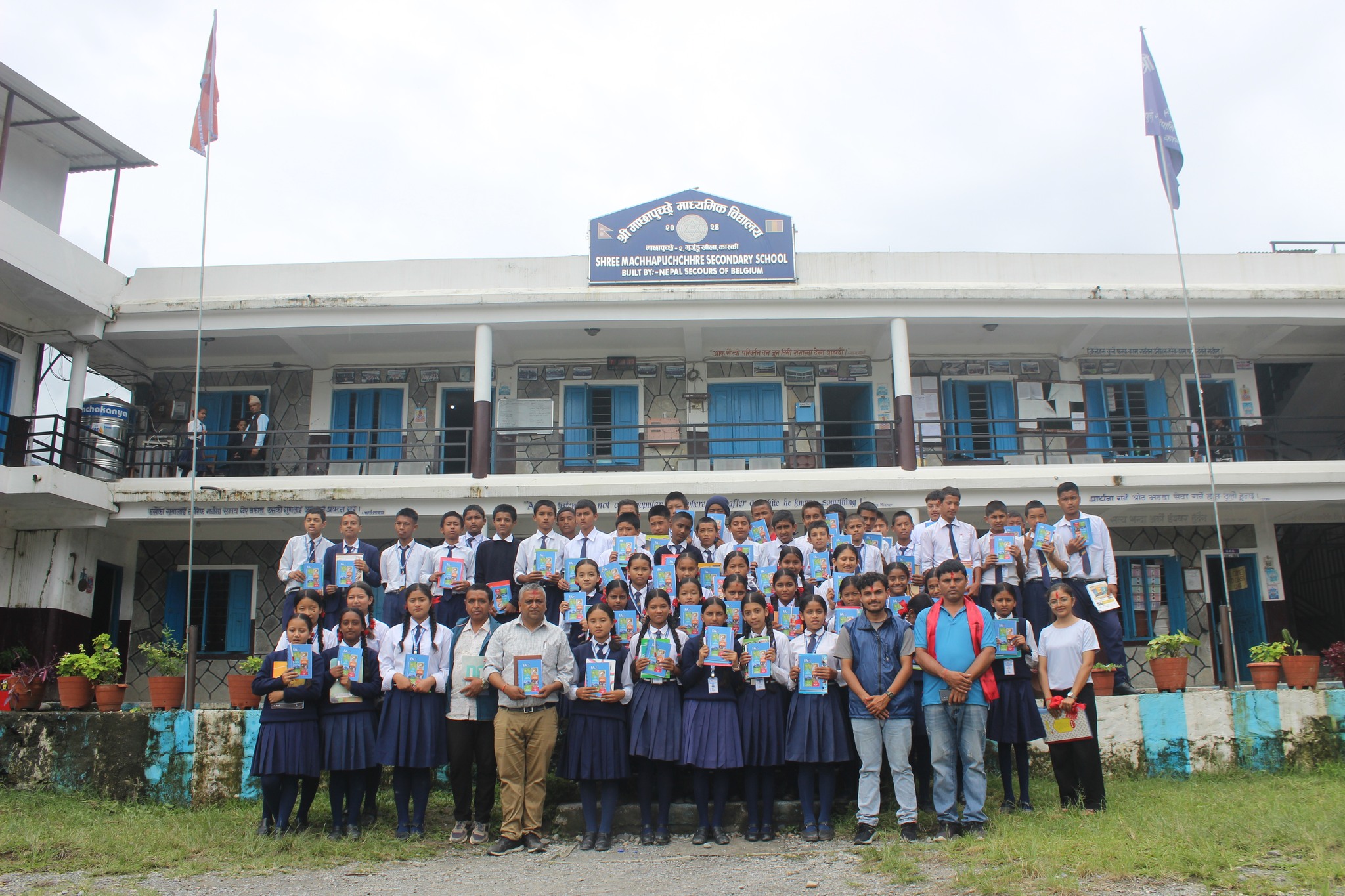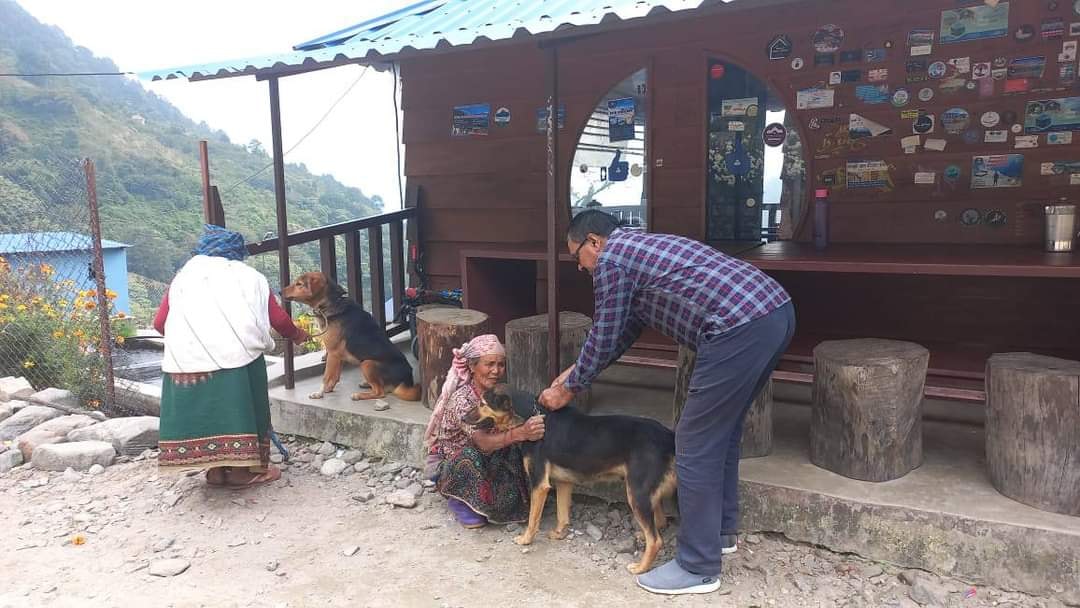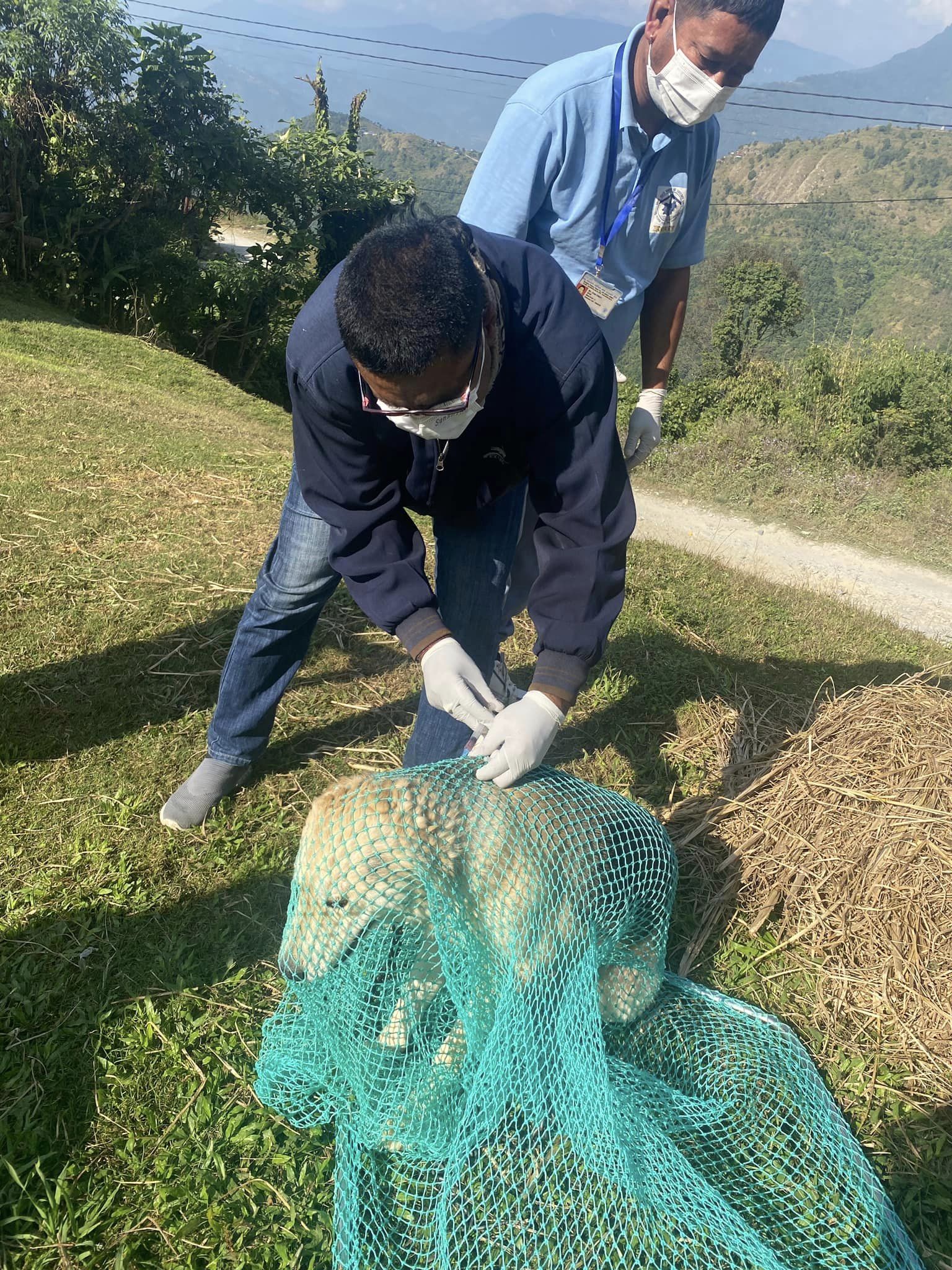Rabies School Awareness Campaign and Vaccination Program
Rabies is a viral disease that spreads through the transmission of the rabies virus (lyssa virus), when an infected animal bites a human or other animal. If the saliva of an infected animal comes into contact with the eyes, mouth, nose, or open wounds, it also causes the transmission of the rabies virus. Dogs, cats, and bats are the most common sources of rabies infection in humans. This disease can be diagnosed only after the symptoms appear. Rabies causes about 59,000 deaths worldwide per year. Vaccination programs conducted in various parts of the world that provide anti-rabies vaccines to dogs and cats have decreased the risk.
On the occasion of ‘World Rabies Day-28th September’, Animal Health Training and Consultancy Service (AHTCS) conducted a School Awareness Campaign and Vaccination Program in various locations in the Kaski district of Nepal as an initiative for rabies control in the community by educating the young minds about rabies prevention and the importance of vaccination to secure the health of both humans and animals.
Awareness Campaign in Schools: Initially, the program involved raising awareness in schools. The campaign was conducted in four educational institutions:
- Machhapuchhre Higher Secondary School (Machhapuchhre Rural Municipality-2, Bhurjung khola)
- Shree Dhurba Secondary School (Madi Rural Municipality-4, Tarkang)
- Abhiman Memorial School (Annapurna Rural Municipality-5, Nayapool)
- Shree Ratanpandey Secondary School (Pokhara-13, Arba)
The program focused on educating young minds about the dangers of rabies and how to protect themselves and their communities through bite prevention and vaccination. Students participated in interactive sessions that highlighted key prevention strategies, such as avoiding contact with stray animals, reporting bites immediately, and critical role of vaccinating pets to prevent the spread of deadly virus. We also emphasized the one health approach along with the Rabies prevention, which recognizes that the health of people is connected to the health of animals and our shared environment.
Vaccination Program: The second major activity of the initiative was a series of rabies vaccination drives, targeting areas with high incidences of rabies cases. The vaccination efforts were conducted in different locations Kaski district:
- Madi Rural Municipality-1, Sikles
- Madi Rural Municipality-3, Yanjakot
- Madi Rural Municipality-4, Tarkang
- Madi Rural Municipality-5, Sunpadali, Thulaswara
- Madi Rural Municipality-6, Taprang
- Madi Rural Municipality-7, Chachok
- Pokhara Metropolitan City-16, Armala
These campaigns prioritized vaccinating dogs and cats, which are the primary source of rabies transmission to humans. By immunizing dogs, the program directly reduced the risk of rabies outbreaks in the region. Vaccination is a scientifically proven strategy to break the chain of rabies transmission. The involvement of local authorities and community volunteers ensured efficient implementation of the vaccination drives, boosting participation and public trust.
Support and Collaboration: This program was made possible through the support of Global Alliance for Rabies Control (GARC), a global leader in rabies control and eradication. Their support played a vital role in ensuring the program’s success, both in raising awareness and in executing the vaccination drives.
This program highlighted the importance of collaboration between local communities, schools, and international organizations in addressing public health challenges. Sustained efforts, including regular vaccination and continuous awareness campaigns, will be crucial to achieving the ultimate goal of eliminating rabies and safeguarding both human and animal health. Through such initiatives, the Kaski district is contributing to the global mission of eradicating rabies.


